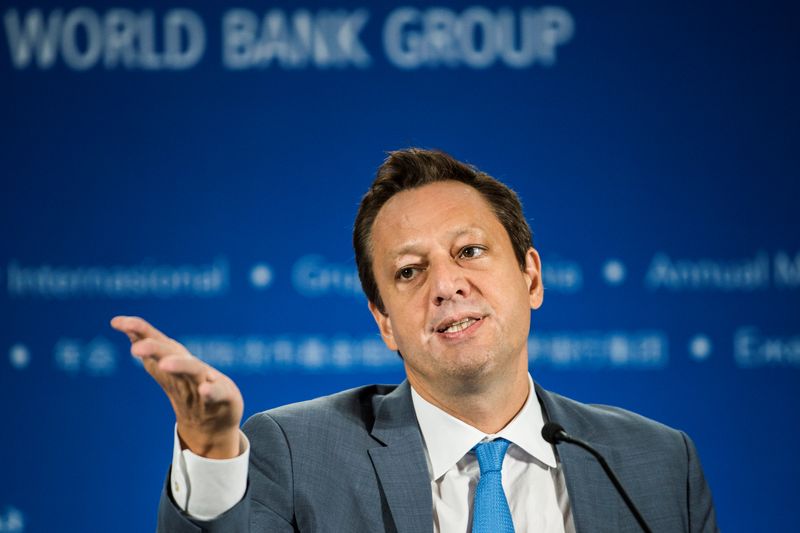By Megan Davies
NEW YORK (Reuters) - The coronavirus pandemic and economic shutdowns could have multiple second-order impacts such as deflation in some economies, a loss of output, permanently-shifted supply chains and a re-evaluation of regulation, the director of the International Monetary Fund's monetary and capital markets department said.
The comments came after the IMF, the world's largest multilateral lender, on Monday released its Global Financial Stability Report, warning the crisis presents a very serious threat to the stability of the global financial system.
"For some countries around the world, it is dangerous to keep expanding public sector debt, because it may be unsustainable, but in the major advanced economies like the U.S. and many European economies, the problem is more one of deflationary pressures," said Tobias Adrian in an interview.
U.S. consumer prices fell by the most in more than five years in March and further decreases are likely as the outbreak suppresses demand for some goods and services. Economists are predicting the disinflationary trend will persist for a while or there will even be a short period of outright deflation.
Adrian also said he was concerned about a persistent loss of output as the economy cannot be simply switched off and back on and there "may be a permanent change in the structure of the economy and supply chains may shift permanently."
"The initial story was that we will shut down the economy and restart and (all is) back to normal," said Adrian. "I worry the economic structure gets damaged in the meantime, (that) there is scarring, businesses get shut, people are unemployed, you can’t go back to where you left off."
In Monday's report, the IMF said asset managers remain vulnerable if there is a prolonged period of dislocation in financial markets. Financial markets, which fell into a bear market on concerns about the spread of the virus, have been regaining on the back of massive fiscal and monetary stimulus.
“I do expect some shake out in the asset management industry where some of the funds that have weaker balance sheets are hit harder" by corporate distress, said Adrian. "The Fed and the Treasury can't protect everyone to the same degree."
Adrian said an upshot could be strengthened prudential regulation for asset managers globally, for example regarding leverage and liquidity transformation - using short-term liabilities to finance illiquid long term assets.

"In terms of financial stability, I think that there will be an impetus to look at market-based finance and regulatory approaches so that if there is another shock then the central bank doesn't have to come in and backstop everything," Adrian said.